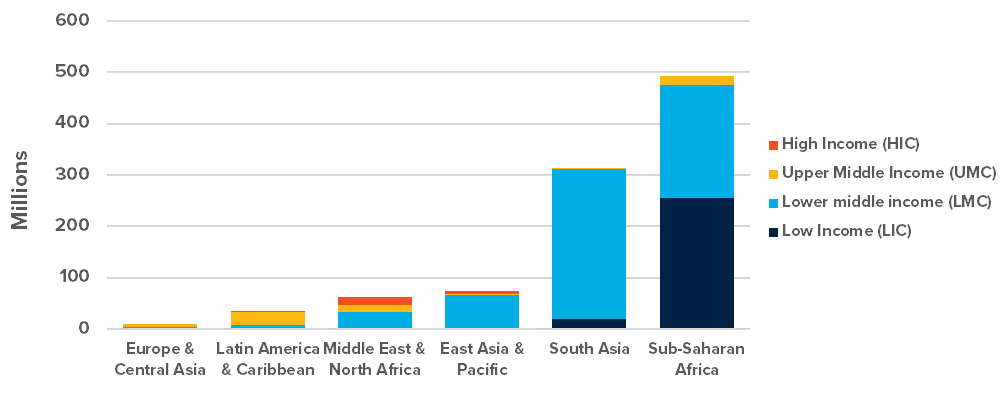Search
Why ID matters for development
As of 2018, the ID4D Global Dataset estimates that there are 1 billion people worldwide who do not have basic identity documents. These people are overwhelmingly in Sub-Saharan Africa and South Asia and are typically members of the poorest and most vulnerable groups, including marginalized women and girls, less-educated people, migrants, refugees, asylum seekers, stateless persons, people with disabilities, and people living in rural and remote areas (ID4D-Findex).
Nearly one-in-two women in low income countries do not have their country’s national ID or similar foundational document, limiting their access to critical services and participation in formal political and economic life (ID4D-Findex). Half—nearly 500 million—of those without basic proof of legal identity live in Sub-Saharan Africa, and 47 percent are children who were not registered at birth (ID4D Global Dataset).
Figure 1. Unregistered population by region

Source: ID4D Global Dataset (2018)
This global identification gap is partly a result of the fact that many low- and middle-income countries lack well-functioning civil registration (CR) systems to record births, deaths, marriages, and other vital events, which are essential for providing legal identity from birth. Even where civil registers and ID systems do exist, they are often paper-based, subject to data errors and fraud, built for narrow purposes that do not suit more general uses (e.g., voter ID cards or social benefit numbers), fragmented across several government agencies, and/or exclusionary of specific groups or populations. Furthermore, many countries lack strong legal and regulatory frameworks to support trusted and inclusive ID systems that adequately ensure privacy and data protection. Thus, in addition to the 1 billion people who do not have basic proof of identity, many more lack ID that is useful and trusted. Without trust and convenience for people and other users, these ID systems have diminished value.
